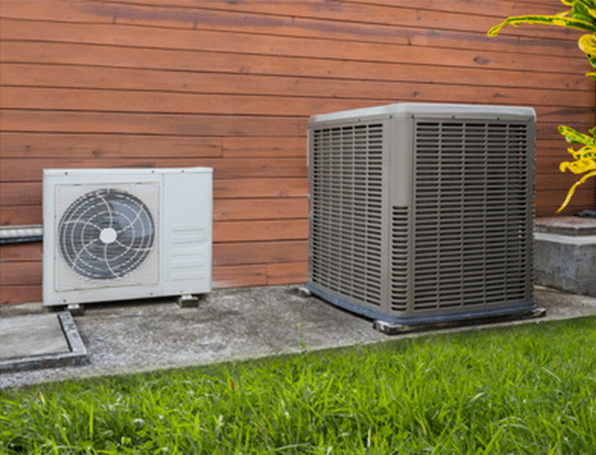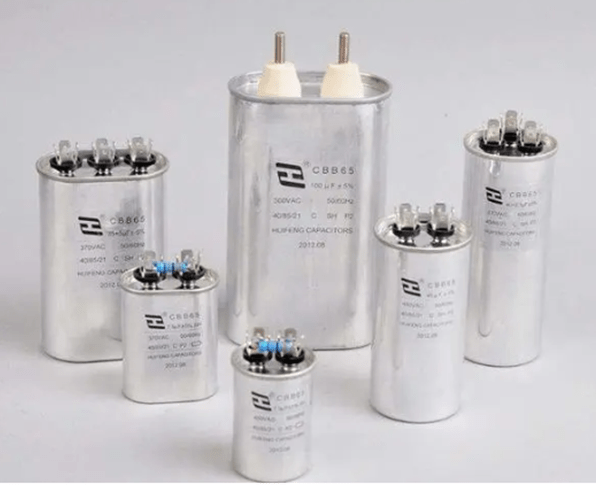
Figure 1: Heat pump outdoor unit.
A heat pump compressor that starts and then stops can be a frustrating and potentially costly issue. A malfunctioning compressor can cause inefficient operation, poor heating or cooling performance, and even complete system failure.
In this article, we'll explore some of the common causes of a heat pump compressor starting and then stopping and the steps you can take to troubleshoot and resolve the issue.
1. 5 Common Causes of a Heat Pump Compressor Starting and Then Stopping
There are several potential causes of a compressor for heat pump starting and then stopping. Some of the most common causes include:
● Electrical Issues
● Faulty Capacitor
● Low Refrigerant Levels
● Dirty Air Filter
● Thermostat Issues
Let's take a closer look at each of these potential causes.
1.1 Electrical Issues
One of the most common causes of a heat pump compressor starting and then stopping is an electrical issue. This could be due to a blown fuse or tripped circuit breaker, a faulty thermostat, or a problem with the wiring or connections within the system.
If the electrical supply to the system is interrupted, the compressor may not receive the power it needs to run continuously, causing it to start and then stop. Electrical issues can also cause the compressor to overheat, leading to system failure.

Figure 2: Components of the heat pump outdoor unit.
1.2 Faulty Capacitor
Another common cause of a heat pump compressor starting and then stopping is a faulty capacitor. The capacitor is responsible for providing the initial electrical boost that the compressor needs to start up. If the capacitor fails, the compressor may not have enough power to start up, or it may fail to start altogether.
1.3 Low Refrigerant Levels
Refrigerant is essential for the heat pump system to operate properly. If the refrigerant levels are too low, it can cause the compressor to overheat or fail to run continuously. Low levels of refrigerant can also cause the system to freeze up, which can damage the compressor and other components.
1.4 Dirty Air Filter
A dirty or clogged air filter can restrict the airflow through the system, causing the compressor to work harder than it should. This can cause the compressor to overheat and shut off as a safety mechanism.
1.5 Thermostat Issues
Problems with the thermostat can also cause a compressor for heat pump to start and then stop. If the thermostat is not calibrated correctly, it may not send the right signals to the heat pump, causing it to turn on and off at the wrong times.

Figure 3: McQuay thermostat.
2. Troubleshooting a Heat Pump Compressor Starting and Then Stopping
If your compressor for heat pump is starting and then stopping, there are several steps you can take to troubleshoot the issue. Here are some of the most important steps to follow:
2.1 Check the Power Source
The first step is to check the power source for the heat pump system. Make sure that the circuit breaker is not tripped and that the fuse is not blown. Also, check the thermostat to ensure it is set to the correct temperature and that the batteries are not dead.
2.2 Inspect the Wiring and Connections
If the power source is not the issue, the next step is to inspect the wiring and connections within the system. Look for loose, frayed, or damaged wires or connections and repair or replace them if necessary. It's also important to ensure that all the components within the system are properly connected and in good working condition.
2.3 Check the Capacitor
If the wiring and connections are in good condition, the next step is to check the capacitor. Use a multimeter to test the capacitor and ensure that it is functioning properly. If the capacitor is faulty, it will need to be replaced by a professional.

Figure 4: Capacitors for heat pump.
2.4 Clean or Replace the Air Filter
If the refrigerant levels are not the issue, the next step is to clean or replace the air filter. A dirty or clogged air filter can restrict the airflow through the system, causing the compressor to work harder than it should. This can cause the compressor to overheat and shut off as a safety mechanism.
2.5 Check the Refrigerant Levels
If the capacitor is not the issue, the next step is to check the refrigerant levels. Use a refrigerant gauge to check the refrigerant levels and add more if necessary. However, it's important to note that low refrigerant levels are often a symptom of a larger issue, such as a refrigerant leak. Therefore, it is recommended to call a professional to diagnose and repair the issue.
3. How Do I Know If My Compressor is Bad on My Heat Pump?
There are several signs that can indicate a bad compressor on a heat pump. Here are a few things to look out for:
Warm Air: If the heat pump is blowing warm air instead of cool air during the cooling season or cool air instead of warm air during the heating season, it could be a sign of a bad compressor. If the compressor is not functioning properly, it can cause the heat pump to blow air that is not at the desired temperature.
Loud Noises: A bad compressor can also cause loud noises, such as banging, clanking, or grinding sounds. These noises can indicate that the compressor is struggling to function properly or that it has completely failed.
Short Cycling: If the heat pump is turning on and off frequently, it could be a sign of a bad compressor. The compressor is responsible for maintaining the pressure in the refrigerant lines, and if it is not functioning properly, the heat pump may turn on and off frequently in an attempt to maintain the desired temperature.
High Energy Bills: A bad compressor can also cause your energy bills to increase. If the compressor is not functioning properly, the heat pump will have to work harder to maintain the desired temperature, which can cause your energy bills to rise.
Ice Buildup: If you notice ice buildup on the heat pump during the cooling season, it could be a sign of a bad compressor. A faulty compressor can cause the refrigerant to flow improperly, which can cause the coils to freeze and ice to form on the heat pump.
If you notice any of these signs, it's important to contact a professional HVAC technician to diagnose and repair the issue. A bad compressor can cause further damage to the heat pump system if left unaddressed, and it may even require a complete heat pump compressor replacement or the entire heat pump system.

Figure 5: Repair the heat pump.
4. Conclusion
By understanding the common causes of a heat pump compressor that starts and then stops and taking the necessary troubleshooting steps, you can often resolve the problem and prevent further damage to your system.
If you're not comfortable troubleshooting the issue yourself, it's always best to call a professional HVAC technician to diagnose and repair the issue safely and effectively.
Regular maintenance and upkeep of your heat pump system can also help prevent this issue from occurring in the first place, ensuring efficient and reliable operation for years to come.
Related Info
HVAC Compressor 101: Working Principle, Types, FunctionHeat Pump Compressor Not Turning On: Common Causes and Fixes
Cooling Systems Compared: Inverter AC vs Fixed Speed AC - Which One Should You Choose?
A Comprehensive Guide to the Essential Parts of an Air Conditioning System
Don't Sweat It: How to Troubleshoot and Fix an AC Blowing Warm Air


